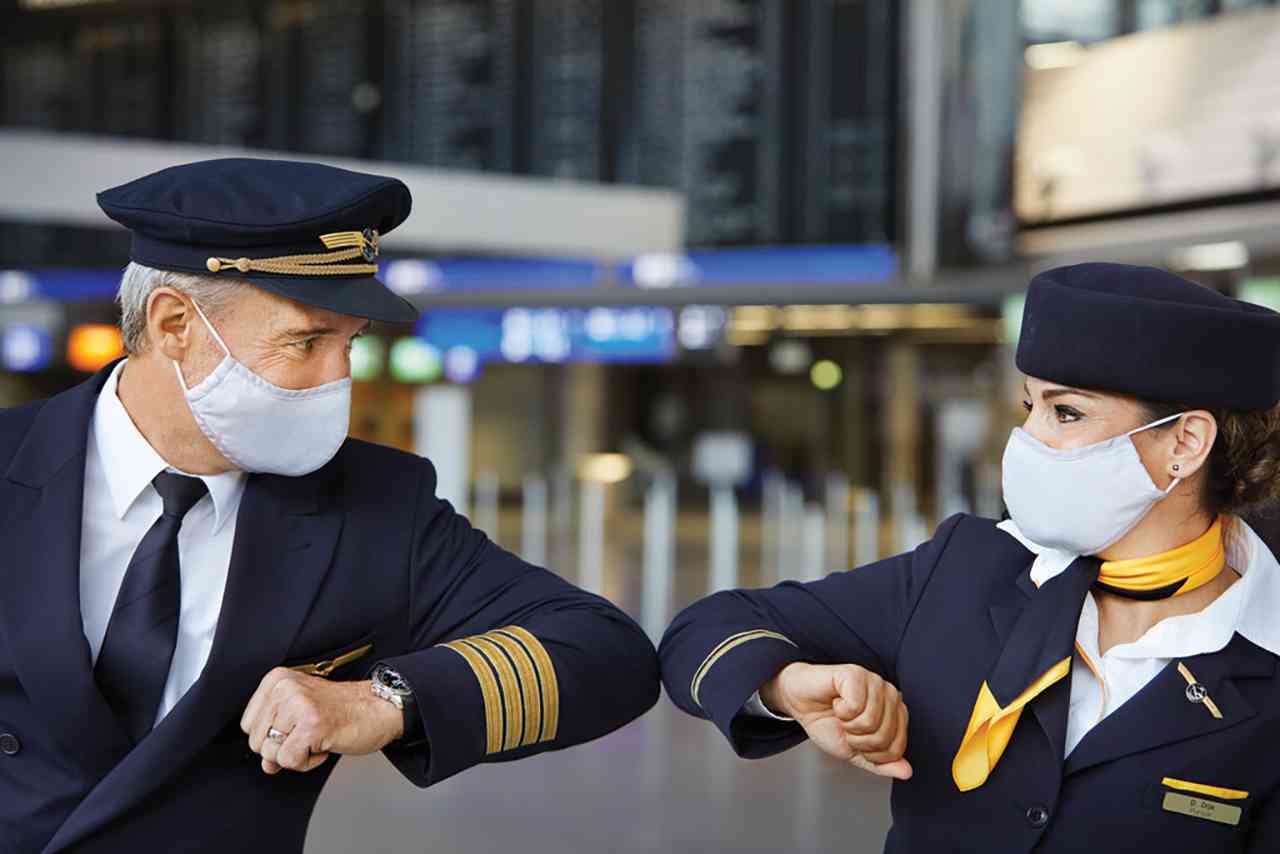
UPDATE: As I mentioned, pilots left open room for negotiation. A strike for tomorrow has now been averted…for now.
UPDATE: Lufthansa pilots shave announced a new strike this week, set to take place Wednesday and Thursday. The strike will last from 12:01 am on Wednesday, September 7, 2022, until 11:59 pm on Thursday, September 8, 2022.
A spokesperson for the Vereinigung Cockpit (VC) union representing Lufthasna pilots lamented:
“Despite intensive talks between our collective bargaining committee and the employer, no conclusion could be reached about a promising continuation of the negotiations.
“We’re too far apart at the moment. In addition to compensating for the loss in real wages, what we now need above all is a future-proof solution for the remuneration structure in all professional groups.”
Lufthans claims the demands, in total, would increase its payroll costs by more than 40%.
“VC is not only demanding a 5.5 percent wage increase by the end of the year as a first step, but also additional compensation above inflation as of January 2023. According to current estimates, this would increase the payroll cost for cockpit personnel at Lufthansa and Lufthansa Cargo by a good 16 percent over the two-year period proposed by VC.
“In addition, VC is demanding, among other things, a new pay scale with a higher base salary as well as more money, for example, for sick days, vacation or training. In addition to the 16 percent, this would increase cockpit payroll costs by a further 25 percentage points based on data from previous years. Even without taking the financial consequences of the Covid crisis into account, this is not acceptable.
“In total, the demands of VC would increase cockpit payroll costs from 2.2 billion euros by probably more than 40 percent – or approximately 900 million euros – over the next two years.”
Lufthansa has not loaded the strike into its schedule yet, but expect almost all flights to be cancelled Wednesday and Thursday. However, this is a small sliver of hope. A spokesperson for VC further added:
“In order to leave no stone unturned in this situation, we have nevertheless offered a hearing for Tuesday. According to reports, this will take place. However, it must be clear that the announced strike can only be averted by a serious offer from the company.”
The original article appears below.
Lufthansa has canceled over 800 flights today (September 2nd) after pilots staged a last-minute strike protesting the inability to reach a deal over pay raises meant to account for inflation. The usual finger-pointing is at play, making me wonder why we have to go through this song and dance so often…
Lufthansa Pilots Strike Again – Over 800 Flights Cancelled, Stranding 130,000 Passengers
Strikes can come about quickly in Germany. On Wednesday, contract negotiations stalled between Lufthansa and the Vereinigung Cockpit (VC) union representing pilots. That led to an announcement that pilots would stage a 24-hour strike on Friday.
Lufthansa has offered all pilots an extra €900 in monthly salary, which would take effect in two stages over 18 months. While that would represent close to a 20% raise for many junior pilots, it would represent only a 5% raise for more senior pilots. Inflation in Germany is already running at more than 5% annually.
VC has demanded an immediate 5.5% pay raise (not phased in over 18 months) and asked for automatic upward adjustments for inflation thereafter. Importantly, it also wants Eurowings pilots to fall under the same payscale as Lufthansa pilots, a strategic demand to stop the carrier’s expansion. Eurowings is a budget airline and wholly-owned subsidiary of the Lufthansa group.
Michael Niggemann, Lufthansa’s head of Human Resources reacted angrily to the strike:
“We lack any understanding of the VC’s call for strikes. The employer side has made a very good and socially balanced offer – despite the retroactive burden of the corona crisis and uncertain prospects for the global economy.”
A Lufthansa spokesperson was more measured:
“We hope to get back to negotiations as soon as possible. However, we cannot bear the cost increases associated with VC’s demands either.”
Unlike Niggemann, I do understand the great gulf that exists between offers. It isn’t clear to me what constituted such a breakdown in talks that a strike became necessary today, but strikes have long been an effective tool of organized labor in Germany to receive desired results.
Just last month, Lufthansa ground workers staged a similar strike…and ultimately won many of the concessions they were seeking.
> Read More:Lufthansa Strikes Deals With Ground Staff After Disastrous Strike
Ultimately, this is the same old song and dance we’ve seen play out frequently over the years. Lufthansa will have to have to improve its offer or else the strikes will continue. The ease in which workers can strike in Germany even in essential industries means that Lufthansa won’t win this battle.
CONCLUSION
On one level I understand why strikes are called so often in Germany…it is because they work. On the other hand, these labor negotiation stories seem to write themselves, with Lufhtasna blasting the union, the union blasting Lufthansa, and eventually a compromise being struck that is closer to the union offer, but not quite. Was a strike really necessary here? I’m sick of this pageantry. With winter coming and energy prices set to soar in Germany, I cannot blame the pilots for wanting to keep up with inflation…Lufthansa will lose this battle.
image: Lufthansa




Muscles are being flexed by trade unions all over Europe at the moment and I think rightly so. The mood appears to be such that there will be no backing off as employers choose to sit on their hands, raking in huge profits while the cost of living sky rockets. Profits of the scale are built on low wages. I think the pandemic made people realise how much they worked for relatively little as bonuses and dividends continued to be paid out almost regardless in the face of mass redundancies. Transport was not alone.
Until the social contract across Europe is respected, there will be no peaceful working.
My father-in-law is flying on Lufthansa next week so I hope all the trouble clears by then.
Quite frankly, from my own experiences in corporate America, I’d rather live in Germany and I’m surprised that Matt didn’t move there rather than locate his family in Los Angeles. For myself, I have a skillset and experience that made it difficult for me to relocate to Poland or Germany but I came close to doing so about 20 years ago.
Unions have largely been busted in the states for about 4 decades now for a variety of reasons (including being infiltrated by organized crime and corruption) but also mass cheap labor immigration: Even when a worker in the states is highly efficient and doesn’t complain, the management ambition is to replace him with a cheap foreign worker indentured servant. It’s the primary reason why the Republican party is effectively dead as a national party and largely can only slightly slow down the left, much less obstruct them since the immigrant electorate mostly votes Democrat.
On the other hand, ironically, the working-class white male Democratic party of my Polish-American father and grandfather is no more (such men are regularly vilified or mocked by the modern left).
For me, this leaves me feeling like an ex-pat no matter where I live: I feel “at home” in Poland, but my best source of income is in the USA. I have a lot in common with the Swiss and rural French as well. Perhaps I’m also just more aware of it. Travel for many is their sub-conscious way of expressing something I am acutely aware of: They don’t feel the world around them “fits” them, so they get what they need from several places.
I’m also astounded at how most people don’t realize how special they are, in a sense, of being happy where they are without a desire to travel a great deal and are strongly immersed in their local community. That’s part of what makes it exciting for me to visit these cultures and enjoy their contentment, even if it’s not my own.
My Polish-American grandfather (albeit barely; he was born in Poland and emigrated at 2 years old) and my American-Polish father were both staunch union members. I grew up appreciating unions and have been a member of them in past jobs. It’s disheartening to have witnessed the destruction of the union movement over the decades, and I heartily wish that unions were stronger.
By the way, I’m a Democrat who’s on the moderate left in most things.
The pilots are not asking for anything ludicrous. What’s slowing things down is something I experienced when living in Germany: Germans want harmony in pretty much everything. The punk clubs I went to in Frankfurt were some of the most orderly places I’ve ever been. The problem is that Germans can be very stubborn. Should there be differences, compromise can only be had once the stubbornness plays out. So, it was inevitable that this difference led to strike action. Now that the pilots have made their point, both sides can proceed to compromise and the issue will be solved very quickly. Remember, Germans love harmony.
Czesc i sczeczliwy dzien praci! 🙂
For your amusement, watch Foils, arm and hog “German immigration” and “German exchange student” on youtube.
When there is a strike, I feel that the workers are attacking us, the customers. They cannot later smile afterwards and be taken with sincerity.
It would be different if they widely announce the strike 6-8 weeks in advance so people can book elsewhere.
The pay increase LH pilots are asking for is only one aspect of this strike – the larger issue at stake in the ongoing conflict between management and pilots is the outsourcing of pilot jobs. The “core LH”, Lufthansa Passage, is barely growing the number of pilots it employs, as wage levels there are high (despite the fact there is clearly a need, see the cancellations that are needed to keep the operation running at least somewhat…). New pilots are pushed to ever new companies within the LH Corporate structure sich as EW Discover, Cityline 2.0 etc. instead.
However, strikes are permissable by law only i. Germany only for wage negotiations. That is why you see a strike for what you rightly describe as a pretty predictable and small monetary disagreement.